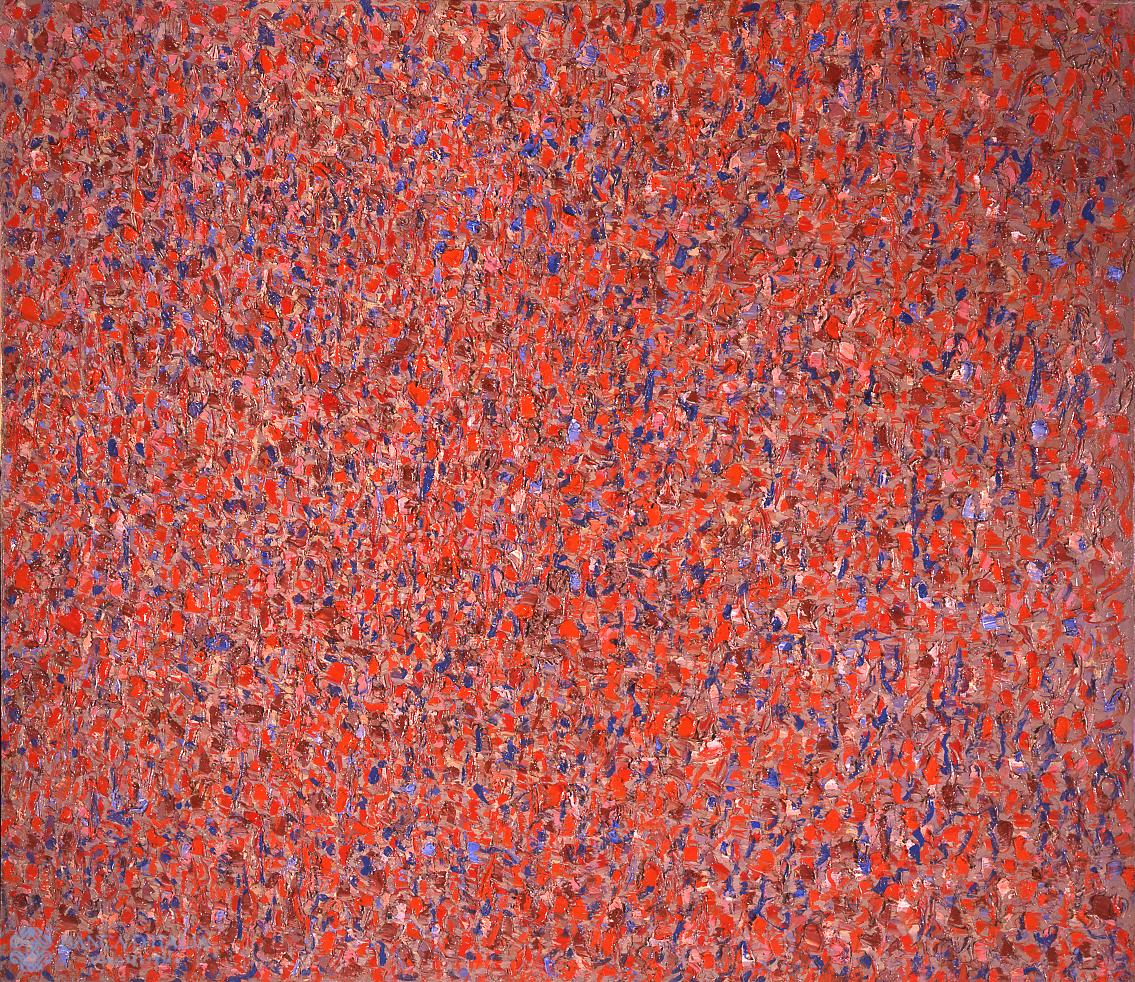Thickly clouded in a fine dust of material, the entire surface is saturated by the chromatic texture that fills every inch of the canvas. The myriad of colours that comprise its solid architecture, minutely tapped out onto the canvas, ultimately abandon their variegated nature to resemble a monochrome. The result is a kind of search for the absolute, which ends by transforming the initial impulse that inspired the work into a vast mirror of quiet.
The work belongs to Sadun’s late period of intensive painting, particularly frenetic in this year that preceded his untimely passing. The artist inaugurated a new style, which while it recovers his fascination for the material from his past experiments, also subdues the violence and changeability of his gestures, lowering the work’s emotional temperature and its participation in the blind surges of life. Many of these “false monochromes”, turned out one after the other in quick succession, were exhibited in the major retrospective devoted to his work by the Ente Premi Roma in Palazzo Barberini in 1976. There is no doubt that they represented Sadun’s most radical achievement of an entirely abstract interpretation, reminiscent of the experiments of Rothko and Tobey.
Piero Sadun, Soggetto astratto
Soggetto astratto
Painting
20th century AD
Abstract

Artist
Date
1972
Material and technique
Oil on canvas
Measurements
100 x 116 cm
Compiler
Fabrizio D'Amico
